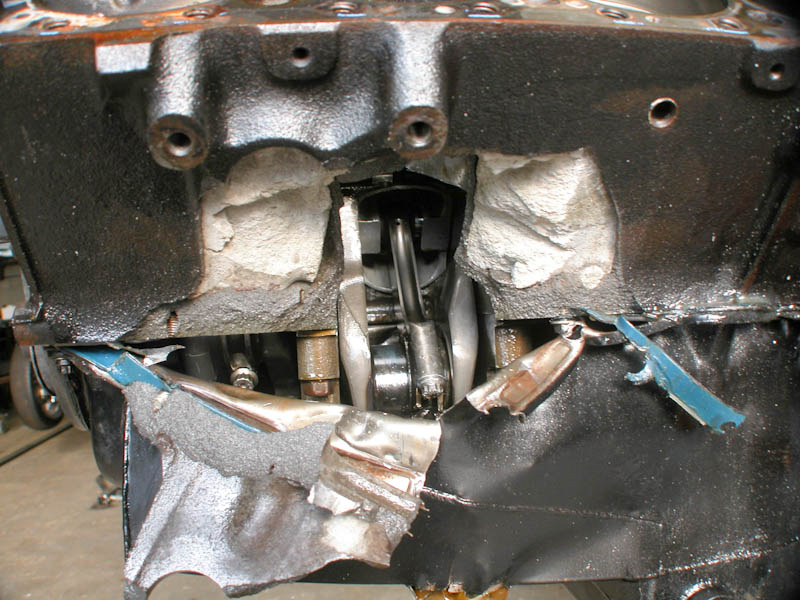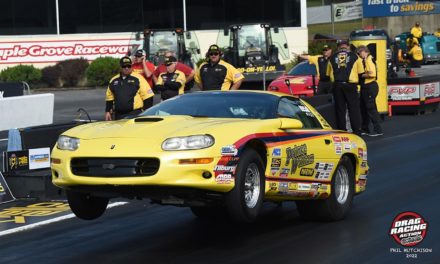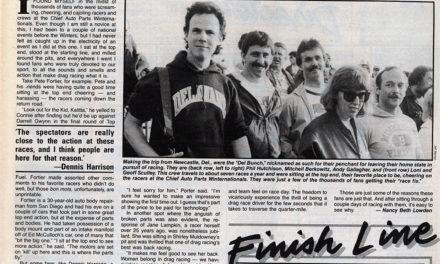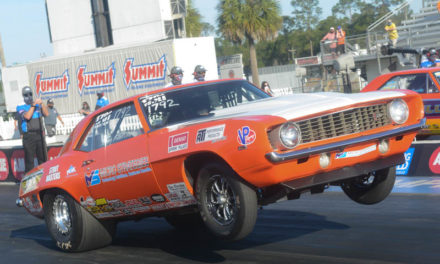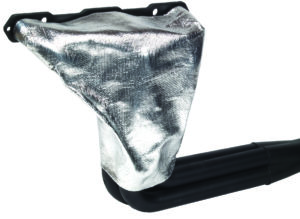EARLY DETECTION
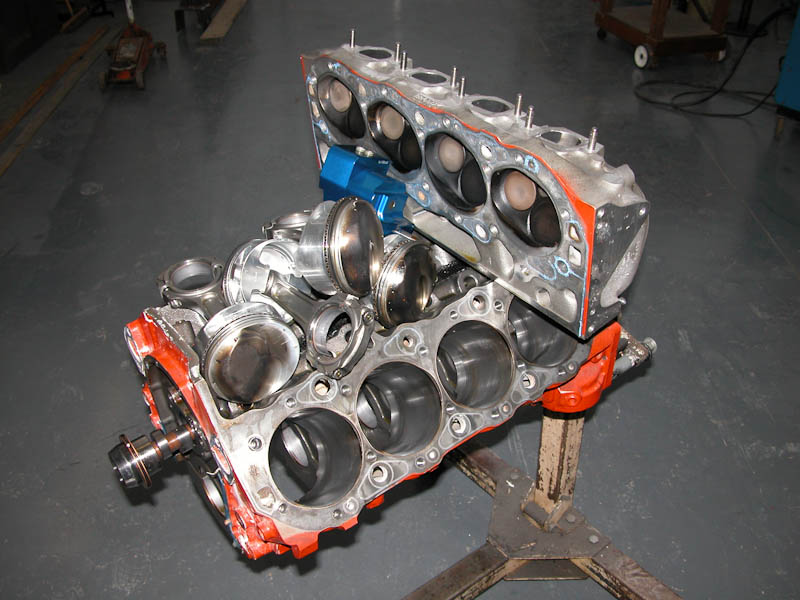
I find myself in a unique position with this week’s Blog. Well, maybe not all that unique as I think anyone who writes, sometimes find themselves with what’s termed as “writer’s block.” It’s a condition where for a short time your mind sort of goes blank. It happens and you roll around wondering what in the heck am I going to write about.
As most of you are probably aware, my writings usually center around the sport we all have a passion for. Of course, my absence at certain races this past year sometimes leads me back to that “what in the heck am I going to write about.” I really can’t make excuses for not being at the races as I believe most know I have some other important (read as health) issues to contend with, issues they tell me are only temporary, but still I have to cope with. Anyway, enough of that, here goes something that really is on my mind this week.
It was several years ago when an engine builder friend thought he heard something funny inside his engine. He proceeded to disassemble the entire engine, eventually finding nothing wrong. But his “early detection” may have saved him from a larger problem. The fact that nothing was wrong wasn’t the point.
Two years ago, my Super Stock engine only had about 50 runs on it at the end of the season. Not really looking to take it apart during the off-season, I instead chose to do so anyway. The result after careful examination of the components was a roller lifter wheel starting to go bad. Had I not disassembled it, I could have had real problems the following season. That might not really come under the early detection philosophy because I really hadn’t “detected” anything, but it does prove that early detection of anything is a key.
In order to obtain an NHRA racing license for cars running faster than 9.99, pros or sportsman, it used to require a NHRA-approved medical exam. Several years ago, the NHRA dropped that requirement in certain classes. Their reasoning as I was told was to save the racer some money. But the fact of the matter is that by “forcing” someone to see a doctor could possibly perform the same early detection of a health issue before it turns into something worse. I know of several racers who during that exam, their doctor found the beginnings of what could have turned ugly had it not been detected early. The fact of saving a racer money is a moot point as I believe most racers have some sort of health insurance which usually will pay for well visits. And if you did have to pay for a doctor’s visit, it still would be money well spent. Better spent there than anything you might buy for your race car.
Over the weekend, the National Football League once again rolled out their Crucial Catch directive. I know a lot of people may have opted to not watch NFL games for a variety of reasons and I’m certainly okay with your choices, but their Crucial Catch campaign does bring up a point. According to them, during the height of the pandemic, screenings for cancer dropped radically. Maybe it was the fear of Covid which may have kept people away from doctors and hospitals, but if something doesn’t feel right, you should act on it.
What was that campaign? “If you see something, say something,” which was related to raising public awareness of terrorism. Well, sort of the same goes for “if something doesn’t feel right, do something about it.” It may not turn out to be anything if you’re lucky, but it just as well may. Over and out! -JOHN DiBARTOLOMEO
